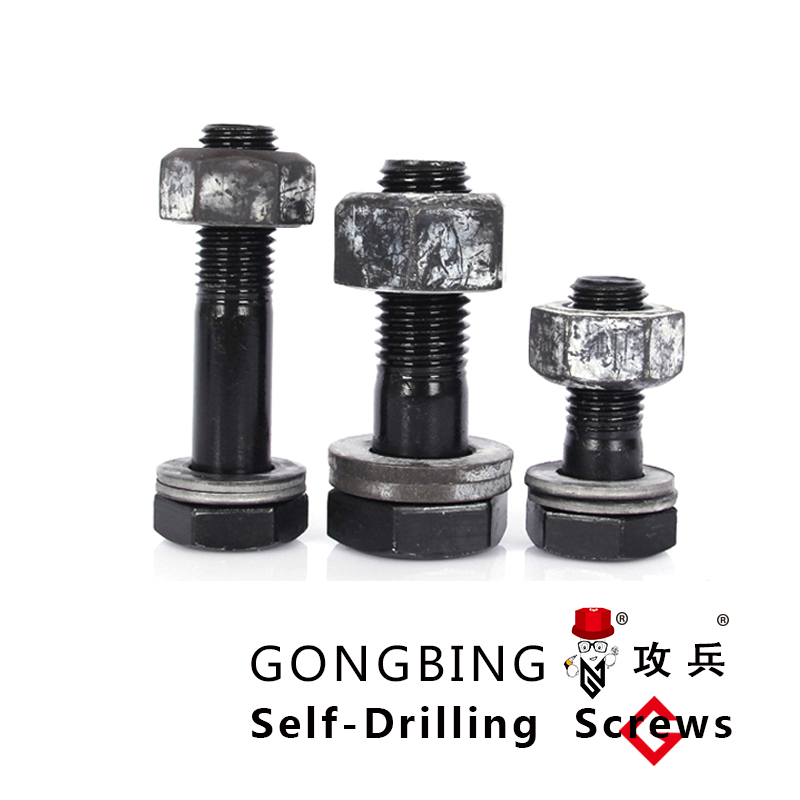self threading screws
Understanding Self-Threading Screws The Ultimate Guide
Self-threading screws are an essential component in construction, woodworking, and various industrial applications. Unlike standard screws, which require a pre-drilled hole, self-threading screws are designed to create their threads as they are driven into materials. This innovative design not only saves time but also enhances strength and stability in the final assembly. In this article, we will delve into the intricacies of self-threading screws, their advantages, types, and applications.
What Are Self-Threading Screws?
Self-threading screws, often referred to as self-tapping screws, are specifically engineered to form a mating thread in the material they are drilled into without the need for a pre-tapped hole. This makes them particularly useful in softer materials like plastic, thin metal sheets, and some types of wood. They often feature a pointed tip, which aids in piercing the material and begins the threading process as the screw is driven in.
Advantages of Self-Threading Screws
1. Time Efficiency One of the most significant benefits of using self-threading screws is the reduction in assembly time. The elimination of the need for pre-drilled holes simplifies the installation process, allowing for quicker project completion.
2. Cost-Effective By reducing the need for additional tools and materials (like taps or drill bits), self-threading screws can lower overall project costs. This makes them an attractive option for both DIY enthusiasts and professional contractors.
3. Versatility These screws come in various sizes, lengths, and materials, making them suitable for a wide range of applications. Whether used in woodworking, metalworking, or masonry, self-threading screws provide a reliable fastening solution.
4. Enhanced Strength and Stability Because self-threading screws create their threads, they often achieve a tighter fit within the material. This results in improved torque and resistance to loosening over time, ensuring a more durable assembly.
Types of Self-Threading Screws
Self-threading screws can be categorized into several types based on their design and intended application
1. Machine Screws These screws often have a flat or pan head and are commonly used in metal applications. They typically require a specific tool to tighten and are used in conjunction with a nut or an already threaded hole.
self threading screws

2. Sheet Metal Screws Designed for securing thin metals, these screws often feature sharp threads and a self-drilling tip. They are ideal for assembly in HVAC systems, automotive construction, and metal structures.
3. Wood Screws With a coarser thread and a tapered body, wood screws are optimized for use in wooden structures. They provide a strong hold by cutting through the wood fibers and creating a tight grip.
4. Plastic Screws These screws have a unique design to accommodate softer materials like plastics. They minimize the risk of splitting or damaging the plastic during installation.
Applications of Self-Threading Screws
Self-threading screws have found their place in numerous industries
- Construction They are widely used in framing, roofing, and installing drywall. Their ease of use and strength make them a staple in construction projects.
- Automotive In vehicles, self-threading screws are used in fastening body panels, installing interiors, and securing mechanical components.
- Electronics These screws are commonly found in the assembly of electronic devices, where they securely hold enclosures and internal components in place.
- DIY Projects For hobbyists and DIY enthusiasts, self-threading screws provide a convenient option for building furniture, crafts, and various household projects.
Conclusion
Self-threading screws are a valuable addition to any toolkit, offering a blend of convenience, efficiency, and strength. With their wide-ranging applications and numerous types, they are indispensable in both professional and DIY settings. Understanding their unique benefits and characteristics can greatly enhance your ability to choose the right fastening solution for your projects. Whether you are engaging in a minor home repair or a large-scale construction task, self-threading screws can simplify the process and ensure lasting results.
-
Weatherproof Plastic Expansion Anchors for OutdoorNewsJun.06,2025
-
Sustainability in the Supply Chain: Eco-Friendly TEK Screws ProductionNewsJun.06,2025
-
Load-Bearing Capacity of External Insulation FixingsNewsJun.06,2025
-
Double Head Bolts: Enhancing Efficiency in Industrial MachineryNewsJun.06,2025
-
Corrosion Resistance in Chipboard Screws: Coatings for Wholesale DurabilityNewsJun.06,2025
-
Butterfly Toggle Bolts : Enhancing Structural ResilienceNewsJun.06,2025
